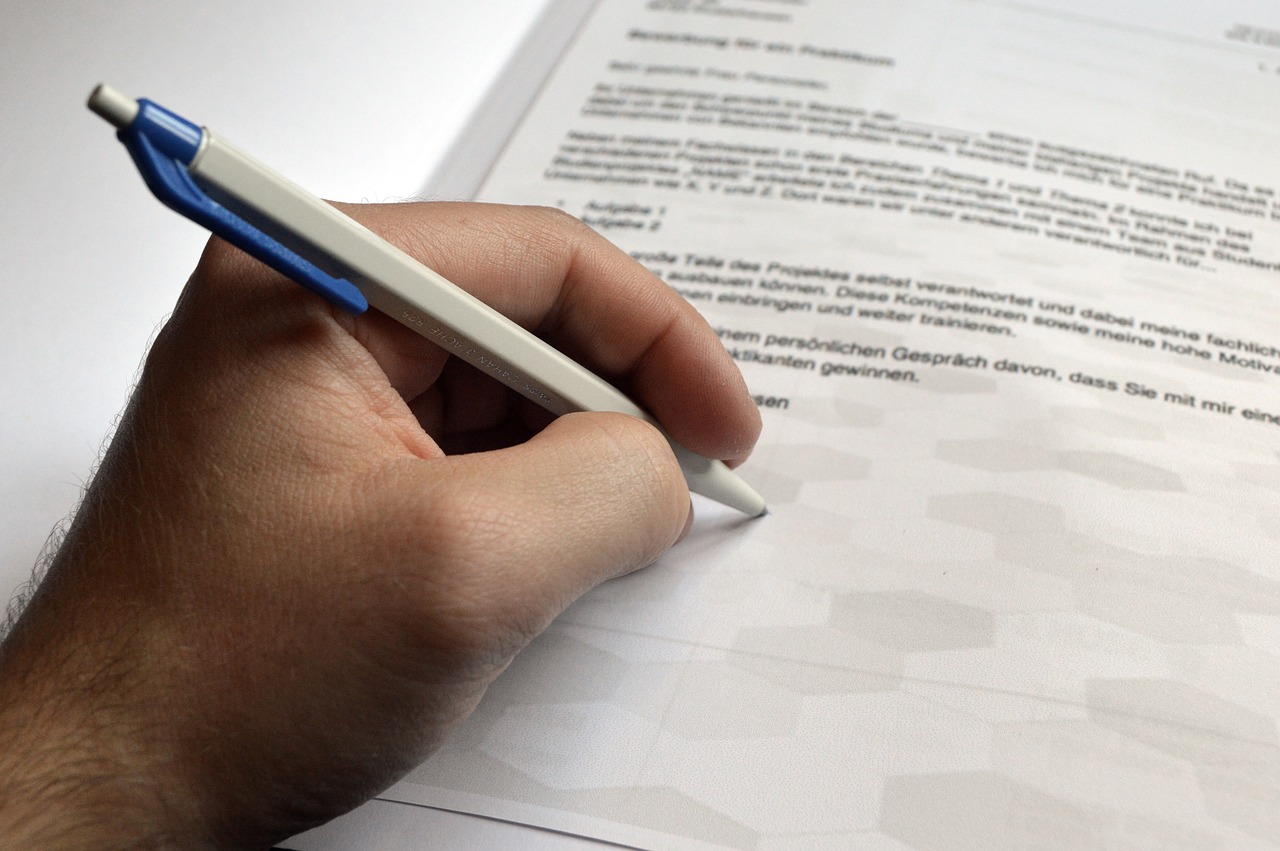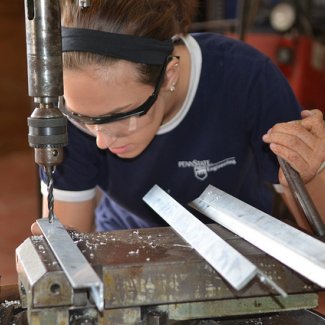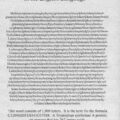
Image via Pixabay
Job-hunting is hard. It's tough. Someone somewhere once said you need to write a cover letter to go with your resume, but what is the purpose of a cover letter?
Isn't that just more work you're putting into your already-time consuming and frustrating job hunt?
For each position you look at, you're up against who knows how many other candidates with qualifications like yours. You're probably also aware that you get just a few seconds of the company's attention before they move on to the next candidate. You've probably even asked yourself hundreds of times how to make yourself stand out from the competition.
That is where the purpose of a cover letter comes in. Done right, your cover letter will make you shine.
No products found.
What Is the Purpose of a Cover Letter, Anyway?
Unless you’re applying for your first job that requires a cover letter and resume, you probably find cover letters extremely annoying. They have to be specific. They have to be tailored. And all of that means that writing a cover letter takes more time than you feel it really needs to.
So what is the purpose of a cover letter?
First off, how do you set yourself apart from other candidates? Your resume lists your previous jobs and job duties, highlights a few accomplishments, and lists your educational background.
In other words, unless you have some unusually good accomplishments, your resume alone will look like the hundreds of others that the hiring manager receives daily.
Secondly, you can use your cover letter to explain employment gaps in your resume. Hiring managers generally don't like to see employment gaps. However, if you can briefly explain that you have a 16-month employment gap because you were ill, then that gap on your resume isn't as likely to stand out as a red flag.
But most importantly, a cover letter is where you introduce yourself to the hiring manager and really showcase your abilities. You need a way to tell the company why you’re the best fit for that particular job, and your resume alone won’t do it.
Your resume also won’t tell the hiring manager whether you know your audience. Companies like applicants that have done some homework. If you can give them an idea of how your skills match their needs, they'll take a harder look at you.
Finally, your cover letter personalizes your resume. It helps make you stick in the hiring manager’s mind so they’ll come back to you when they’re deciding who to interview.
What is a cover letter?
A cover letter is a formal business letter. You don’t want to inject too much humor, inspirational quotes, or anything like that into it. You attach it to the front of your resume so the hiring manager will see it first.
Why you need to know how to write a cover letter
A whopping 45 percent of job-seekers don’t submit cover letters with their resumes. So if you send one, you’ve probably already set yourself apart from almost half your competition.
But that alone isn’t the only reason why you need to know how to write a cover letter. As we said earlier, this is your chance to tell the company who you are, why you’re awesome, and whether or not you understand the company's needs and the job for which you’re applying.
Think of it like a map that matches your skills and accomplishments to the company’s needs.
You can also think of it as a sales pitch. When a cover letter is well-written and contains the right information, hiring managers can see that you understand their needs in addition to whether you’re qualified for the job.
That’s the essential purpose of a cover letter: matching your qualifications and accomplishments to the company’s needs. If you can’t demonstrate that you understand them, they’ll toss your resume aside without much more than a glance and pick up the next one in their pile.
No products found.
Essential Elements of a Good Cover Letter

Now you have an answer to, "What is the purpose of a cover letter?"
You also understand why you need to know how to write them.
But how do you write a good cover letter?
What do you need to put in it?
Greeting
All good letters start with a good greeting. That's also where you get your first chance to demonstrate that you've done some homework on the company. Don't say, "Dear Sir/Madam," "Dear Hiring Manager," or "To Whom it May Concern." Don't use the name of the company in your greeting, either.
Instead, do some research and find out who the hiring manager is. "Dear Mr. Peterson," comes across far better than, "Dear Sir/Madam," or anything generic. Generic greetings look lazy, and the last thing a hiring manager wants to do is waste time on someone they don't believe will work very hard.
If you can't find the name of the hiring manager online or in the company's info, give them a call and ask. The last thing you want to do is blow your chance at that coveted interview with a lazy greeting.
There's always a chance that you won't be able to find the hiring manager's name. In that situation, skip the greeting altogether and just go straight to your introduction. It's far better to do that than it is to toss in a generic greeting.
Introduction
Why are you contacting them? Are you responding to a job ad, or are you doing the equivalent of cold-calling?
Introduce yourself and tell them what you're doing. For instance, if you're responding to a job announcement, tell them where you heard about it or saw it.
By the same token, if someone referred you, tell the hiring manager who that person is. Ideally, you'll already have their permission to use them as a reference in your application. If the hiring manager knows and trusts your referral's judgment, you've got a leg up on some of your competition.
You might want to open your introduction with something unique -- but skip the cliches and the lines from inspirational posters and motivational speakers. Make it about the company, like this: "I saw your job announcement in the newspaper, and I was intrigued, so I looked further into your new initiative in the Midwest. I believe my skills and experience will help you achieve your goals in this area."
No products found.
Body
The body of your letter should be concise and limited to just one or two short paragraphs. However, this the meat of your cover letter. Here is where you get to draw your roadmap between your skills and qualifications and the company's needs.
Or, to put it another way, the purpose of a cover letter is to sell yourself and your skills. When you walk into a store, and a salesperson comes to you to ask if they can help, you're going to tell them what you need.
A good salesperson will show you what they have that can address your needs and explain why that particular product or service will meet those needs.
So, if you're having trouble picturing a roadmap, then think of yourself as a salesperson. Put yourself in the hiring manager's shoes and think about what you would need if you were in their position.
Avoid rehashing your resume, though. Many people just restate their resumes in their cover letters, and that's not what you want to do. You need to draw a picture for the hiring manager. Expand on your resume. If you have a particularly impressive or relevant accomplishment, go into detail about it.
Tell the hiring manager exactly how that makes you the best fit for the job.
Closing paragraph
This paragraph should be concise and to the point. In your closing paragraph, briefly explain again why you're interested in the position, why you want to work for the company, and what you can do for them.
Remember, the primary purpose of a cover letter is to tell them how you can meet their needs, not the other way around. Tell them you're excited about the opportunity to help them further their goals.
Don't over-explain or rehash everything. If you can't read your closing paragraph in just a couple of seconds, chances are the hiring manager will view it as chatter.
Other things to consider
Number one, keep the whole letter short. It's incredibly tempting to put every detail of every one of your skills and qualifications in a cover letter. However, the purpose of a cover letter is to grab the hiring manager's attention quickly.
You only have a few seconds to make a huge impact. The longer your cover letter is, the more likely it is the hiring manager won't even read it.
Number two, keep it formal. Don't get too familiar with them by asking them how they are or how their day is going. Avoid starting your introduction with, "Hey there," "Hi," or even, "Hello." Get straight to the point, and keep your tone professional throughout.
No products found.
So What Is the Purpose of a Cover Letter Again?
Simply put, the purpose of a cover letter is to draw a picture between your background and how it can meet the company's needs. It's your chance to set yourself apart from your competition and make the type of impact your resume won't.
This letter is where you market your background and skills as a service that will help the company.
As you compose your letter, keep the purpose of a cover letter at the forefront of your mind. Yes, it's tedious and hard work. Yes, you might find yourself frustrated.
But since the purpose of a cover letter is to set yourself apart and help the company get to know you, it's well worth your time and effort.
Have an idea for how to write a stellar cover letter that we missed? Leave it in the comments!












Leave a Reply